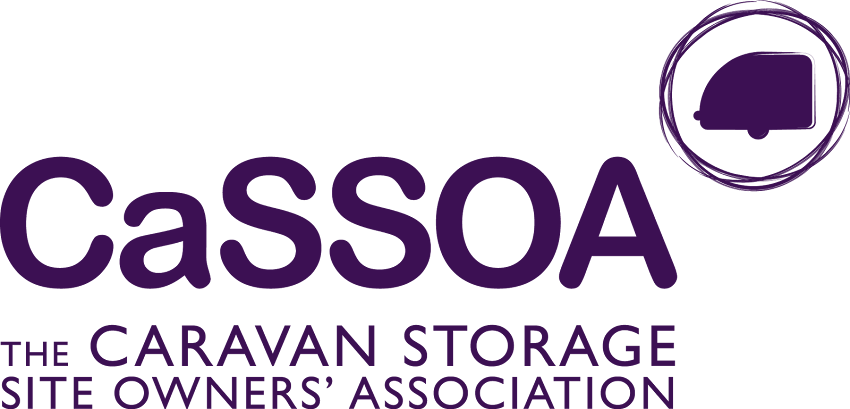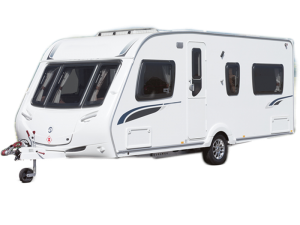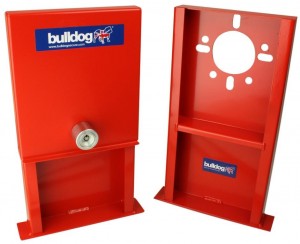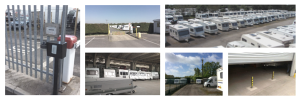When you’re away in
your caravan or motorhome it’s nice to have some home comforts, and that can
include internet access. Here’s our rundown of the options available to you if
you need to get online.
WiFi
Many caravan sites now have WiFi, but the quality, cost and
availability of the connection can vary greatly.
Connection is usually made by entering a pass code into your
web browser. It can be a faster alternative to other methods of accessing the
internet and means that most of the time you don't have to worry about data
allowances. You may be able to access free WiFi zones in town centres or other
public spaces, or a local café may offer their password in exchange for a
drink.
Due to the low power levels and high frequencies used, WiFi reception on campsites can be very patchy. This is particularly the case where there is a lot of vegetation and when there is heavy rain, as both of these can absorb the signal.
Due to the low power levels and high frequencies used, WiFi reception on campsites can be very patchy. This is particularly the case where there is a lot of vegetation and when there is heavy rain, as both of these can absorb the signal.
One way of improving reception is to invest in a WiFi
booster device. In simple terms, these plug into a USB port on your PC,
effectively replacing the internal WiFi circuitry with something more powerful.
MMM Magazine
recommends the iBoost
Pro D8 Directional System for £159.99, for its performance, popularity and
value.
There are also external antennas which can be attached to the side of your caravan. However, although this can give you a faster connection, if the bottleneck is between you and the source of the signal, it won’t make much difference if the site WiFi is already oversubscribed.
There are also external antennas which can be attached to the side of your caravan. However, although this can give you a faster connection, if the bottleneck is between you and the source of the signal, it won’t make much difference if the site WiFi is already oversubscribed.
Mobile Broadband
This is an internet connection using a mobile phone network.
It is often more reliable than WiFi but, since you are paying for data you need
to be careful to avoid additional charges.
If you have a smartphone you can access the internet using
the mobile broadband network, or you can connect your laptops or tablets to
your phone by tethering – turning on your phone’s personal hotspot. Some
networks charge extra for this, limit usage or don’t allow it abroad.
Be aware that if you exceed your set data limit your
connection may be restricted to a very much
lower speed.
Data roaming charges when abroad can be astronomical,
although the situation is getting better. In Europe, mobile data coverage has
increased and data roaming charges have reduced. From June 2015 the most
you can be charged for mobile data is 5p per Mb, however, this is set to be
dropped altogether by mid-2017.
As a rule, each Mb equates to 20 seconds of video, a minute
of audio, or a standard webpage. So, 500Mb of data will allow you to download
500 songs, or an hour of video, or handle 1000 emails with attachments. It will
also allow you to browse thousands of web pages but if they contain interactive
content such as videos, data will be used much faster.
Pay-as-you-go-packages range in price but for example, Three
offer 1Gb for £10 which is valid for 30 days. Contract plans will give you more
data for your money, but will lock you into a contract.
If you're not sure about your contract when it comes to data
and travelling abroad, be sure to change your settings to turn off 3G and data
roaming; only connect via WiFi where available.
 To improve performance, an unlocked MiFi device will take a
SIM card and produce a WiFi connection for up to 10 devices. Some MiFi devices
have external antenna connectors which can improve the signal, especially if
roof or window mounted. Prices range from around £30 up to around £150.
To improve performance, an unlocked MiFi device will take a
SIM card and produce a WiFi connection for up to 10 devices. Some MiFi devices
have external antenna connectors which can improve the signal, especially if
roof or window mounted. Prices range from around £30 up to around £150.
Access via Satellite
Internet access via satellite is reliable but very costly,
with a fully automatic system priced at around £3400 and ongoing charges
between £15 and £60 per month. Satellite
internet is best if internet connection is absolutely vital for you.
In conclusion, it’s
best to agree what your particular needs are, and what your budget is. Mobile
broadband is probably the best option if you want an internet connection
wherever you are, but WiFi will probably satisfy your needs if you’re happy to
wait until a connection is available. If the sky’s the limit, go for satellite
internet!









 for mice to get up to the chassis.
for mice to get up to the chassis.






 CaSSOA offers three levels of accreditation for storage site owners; Bronze, Silver and Gold, with awards based on a number of factors including security features and on-site facilities. Accreditation is based on a mandatory survey which is required every 5 years to ensure that standards are being maintained.
CaSSOA offers three levels of accreditation for storage site owners; Bronze, Silver and Gold, with awards based on a number of factors including security features and on-site facilities. Accreditation is based on a mandatory survey which is required every 5 years to ensure that standards are being maintained.
